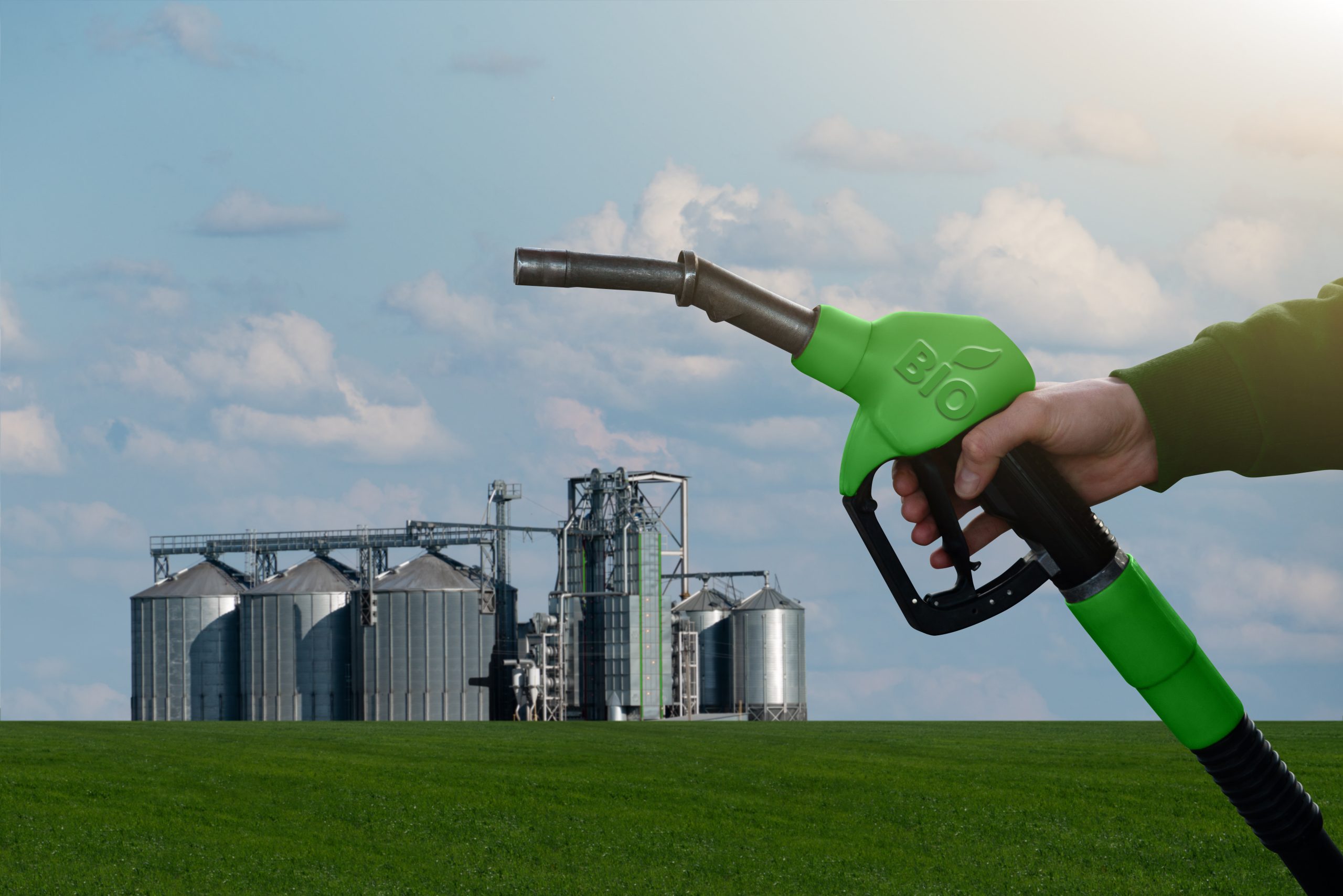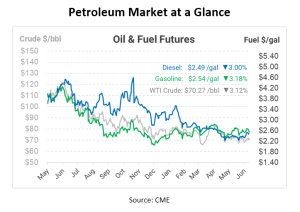
So Many Biofuels, So Little Time – Diesel Demand Skewed by Biofuels
Analysts tracking diesel supply data may have noticed an interesting trend – diesel demand is slumping. Diesel demand is sharply down compared to pre-COVID levels. Yet the trucking industry is doing well, and the economy seems to still be performing. What’s the disconnect? According to a recent article from the U.S. Energy Information Administration (EIA), the balancing factor is biodiesel and renewable diesel – two products that have grown so much, they’re beginning to substantially change petroleum-diesel demand.
According to the EIA, West Coast diesel consumption decreased in 2022 and is on track to be even lower in 2023. It’s worth noting that West Coast’s biofuel consumption is impacting national statistics, but the change is unique to the West Coast. In the rest of the United States, diesel consumption has been near five-year averages and has not shown a noticeable trend, aside from returning to pre-pandemic levels. The fact that one region’s demand changes can impact national data shows how important biofuels are becoming in American diesel markets.
Biofuels are becoming increasingly popular on the West Coast, causing a decline in the consumption of petroleum-based distillate fuel oil. Renewable diesel, in particular, has gained a larger market share of the region’s diesel pool as clean-fuel programs incentivize biofuels. Renewable diesel is chemically equivalent to petroleum-based diesel but is produced using fats, oils, or greases rather than petroleum. Biodiesel is another biomass-based diesel fuel that can be used in place of petroleum distillate, typically blended at concentrations of 20% or less.
The discrepancy in distillate fuel oil consumption between the West Coast and the rest of the United States demonstrates the general effect of biofuel consumption on diesel consumption and indicates that most of the renewable diesel produced in the United States is consumed on the West Coast. As renewable diesel consumption continues to grow, diesel product supplied will continue to decline in the West Coast. Likewise, if renewable diesel consumption extends to other U.S. regions, the EIA expects diesel demand to decrease in those regions.
Overall, this trend toward biofuels could have a significant impact on the fuel market and the environment. As more and more consumers switch to renewable diesel and biodiesel, the demand for petroleum-based distillate fuel oil will decrease, which could lead to a decrease in prices. Additionally, biofuels are considered cleaner and more environmentally friendly than traditional fuels, which could lead to a reduction in greenhouse gas emissions and other pollutants. With several states considering low-carbon fuel requirements, it will be interesting to see how diesel demand is impacted, and how effectively biofuels can scale to fill the gap.

This article is part of Daily Market News & Insights
Tagged:
MARKET CONDITION REPORT - DISCLAIMER
The information contained herein is derived from sources believed to be reliable; however, this information is not guaranteed as to its accuracy or completeness. Furthermore, no responsibility is assumed for use of this material and no express or implied warranties or guarantees are made. This material and any view or comment expressed herein are provided for informational purposes only and should not be construed in any way as an inducement or recommendation to buy or sell products, commodity futures or options contracts.





